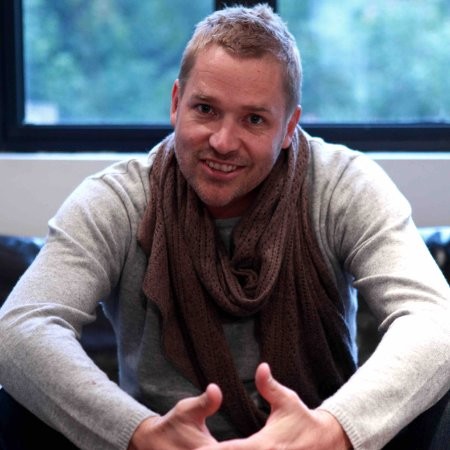South African-born entrepreneur Grant Horsfield went to China in 2006, hoping to build a trading company. He’d seen a friend make a fortune with his chicken feet business.
He looked back on his early days in China in a recent interview with VC firm GGV Capital. After a year in the country, Horsfield said it dawned on him that nobody needed South African products; what was lacking in China was a certain quality of life. Back then, lifestyle was somewhat of a novel concept in the country. People put work before life, believing that there will be a better tomorrow if they work hard now.
To Horsfield, there is more to life than work – and he was convinced that an appreciation of the finer things would steadily grow in China, too. The American coffee chain Starbucks is essentially selling a lifestyle and it’s had an incredible run in China since its launch in 1999.
Turning the countryside into a lifestyle
But coffee wasn’t Horsfield’s business. Growing up on a farm, he often felt overwhelmed by the Chinese metropolises and yearned for a place with natural beauty. He sensed that there might a demand for a city getaway among the working Chinese. In 2007, he founded Naked Group (裸心 Luo Xin in Chinese) together with his wife Delphine-Yip Horsfield. Naked Group incorporated a concept called “Ye She” 野奢 (literally meaning wild luxury), where visitors enjoy nature but experience luxurious hospitality at the same time.
The couple’s first resort was called ‘Naked Retreats’ and was based in the rural area of Moganshan, Hangzhou. Grant Horsfield came across this area on a bicycle trip. It was a village with large reservoirs, bamboo forests, tea plantations — the perfect place for a weekend retreat.

Building the resort wasn’t an easy ride, especially when dealing with residents in Moganshan as a foreigner. However, Horsfield was able to adjust, he says because he could relate to the circumstances as the son of an African farmer. Horsfield was eventually accepted by the community and earned the nickname “老高” , or “Old Gao”. (Gao means tall) Gao is how Grant was known in China. The “old” was a special honour, because only close friends will address each other this way.
After Naked Retreats came Naked Stables, a more ambitious project that featured 121 luxury rooms in tree-top villas and huts – all constructed with environmentally friendly materials. Horsfield took on bank loans to fund the business and went through trials and tribulations before it eventually became successful. He managed to raise the money without giving away equity – it was important to him to fully remain in control of the business. The project became the first resort in China to be awarded a LEED (Leadership in Environmental Energy Design) Platinum Certification in 2013. There are now various resorts under the Naked Group brand.
Lifestyle in the city
By 2015, Horsfield saw an opportunity to expand the brand into co-working and founded Naked Hub. In his conversation with GGV, he argued that most co-working space providers misunderstand the concept of co-working as an “arbitrage of space” – but he believed that the main objective of these spaces is to enable networking and effective collaboration. Horsfield explained, “the more that companies can interact with each other, the more business they can do with each other, the more successful they can be.”
Another reason for starting Naked Hub was that co-working offices are much more scalable and easier to build than resorts. To run a resort Horsfield needed one employee to every 25 customers, but in a co-working office, one employee manages 100 customers. Building a resort is complicated and arduous but renovating a co-working space only requires 3 months.
Naked Hub started its first co-working office in Shanghai and within three years, it had developed into a community of 10,000 members and 200 employees in 24 locations. The company eventually took on venture capital and expanded the Naked Hub brand to other Asian countries.
Drawing from the experience of creating holiday resorts, Naked Hub emphasizes hospitality and puts great effort into creating comfortable shared spaces.
A co-working environment should fulfill five communal functions, Horsfield explained. One is the kitchen or coffee area. The other one is the living room, then meeting rooms or workshop spaces, hot desks, and then the wellness spaces.

At Naked Hub, these shared spaces make up about 30 percent of the whole area. That’s about double what most other companies globally do, according to Horsfield. To reduce the risk of increasing rent prices, Naked Hub signs management deals with real estate companies for long-term partnerships at fixed rental rates. Another innovation, called Naked Hub Go, offers hot desk services where people pay by the minute.
When US co-working giant WeWork entered China in 2016, Naked Hub was its main rival. After a head-on battle, the US firm eventually acquired Naked Hub in a US$400 million deal. What WeWork gained was a firm that had already established itself as a lifestyle brand in China and had plenty of experience on the ground there as well as other Asian cities.
Recently WeWork, already backed by SoftBank and others, raised an additional US$500 million to expand its China business. Its main rival is now Chinese co-working chain Ucommune.
Meanwhile, Horsfield is no longer involved in the day-to-day operations of Naked Hub and says he’s ready to take on a new challenge, this time focusing on education.
He sees a huge concern with teachers. “They are the worst-paid people. The janitors make more money than teachers. Institutions make all the money”, he told GGV. He’s now pursuing an idea that invites teachers and tutors to become more entrepreneurial and to offer classes outside of the formal school setting. He’s creating a booking platform that utilizes empty spaces such as restaurants and hotels and makes them available to host private classes. Doing something to improve the situation of educators, Horsfield believes, will impact generations to come.
Editor: Nadine Freischlad
